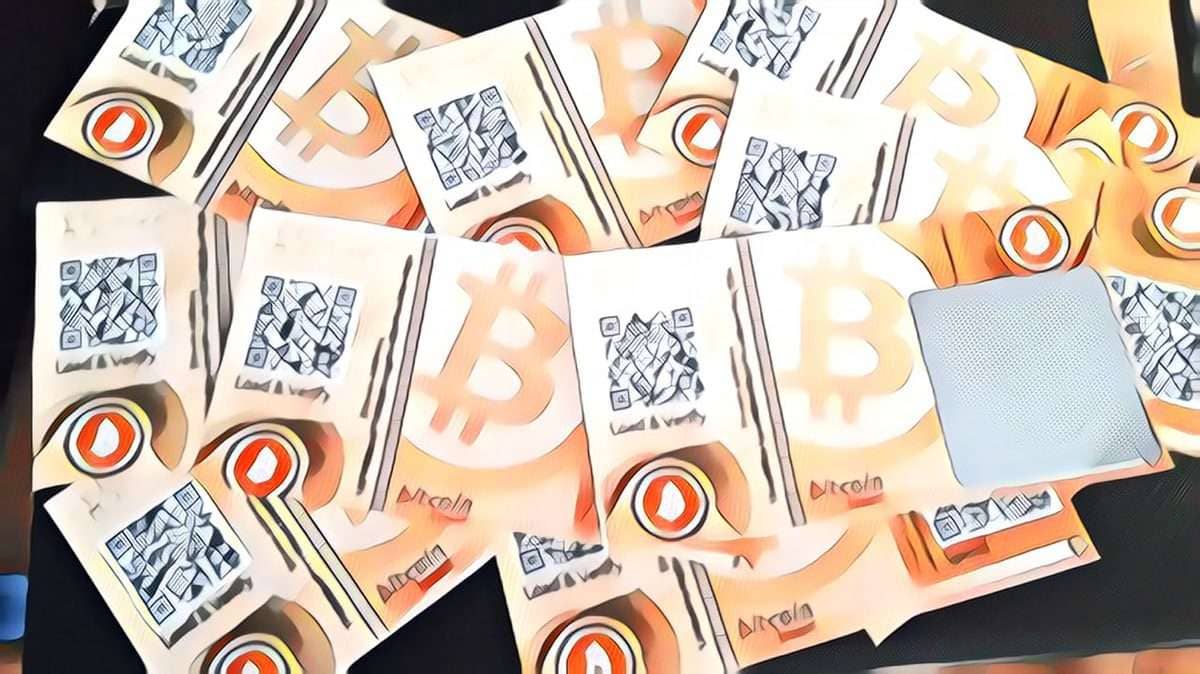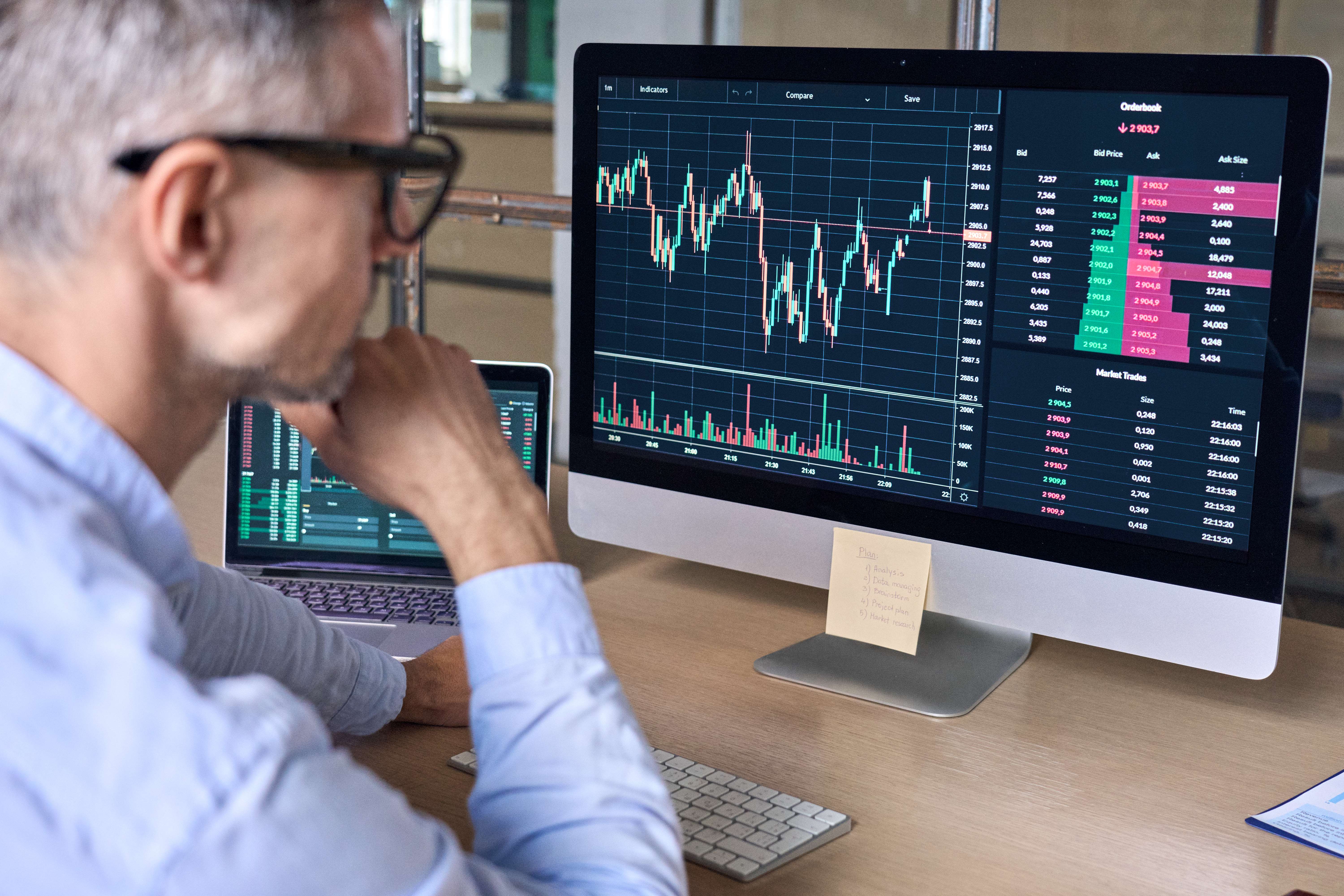Content
- What then is a Crypto Wallet?
- Hardware Wallets Explained
- What is a Blockchain Wallet?
- Sending crypto
- Institutional context and considerations — An institutional wallet?
- STAR: Brave’s new system for privacy-preserving data collection
- My Father Taught Me Everything I Know About Money. Here’s Why I’ll Be Doing Things Differently for My Own Son
Online wallets, also called software wallets, are your hot wallets. Desktop, mobile or web-based applications, these wallets require an internet connection and are both more accessible but also more prone to hacking than cold wallets. “A crypto wallet is just like your own bank”Whatever the business is, the core functionality of crypto wallets will never change. Every blockchain application will require a wallet to store their digital assets, mostly the exchange or trading platforms.

If your hardware wallet is lost, the assets are backed up with a single seed phrase. A seed phrase, also known as a recovery phrase, is a list of words that re-generate your private key. You can use your seed phrase to move your keys to a different hardware wallet. crypto wallet XCritical Hardware wallets are often considered cold storage, as they isolate your private keys from the Internet, mitigating the risks of your assets being compromised in an online attack. Platforms like Radar Relay let you trade directly from your hardware wallet.
What then is a Crypto Wallet?
Thus, the security attributes of the digital wallet also apply to the cryptocurrencies and any important actions users take with regards to these assets. With payment information and passwords stored digitally, a digital wallet allows you to make faster and easier transactions. The issues from an institutional perspective are scale, risk and alignment with traditional organizational controls and governance.
- A decline in value or a complete loss are possible at any time.
- They snipped up their private keys and scattered the cut-outs in secure vaults across the U.S.
- As mentioned above, the most popular hardware crypto wallets are produced by Ledger and Trezor.
- For another, any transaction has to pass through an intermediary, like a bank, meaning there is a central point of failure.
- With these factors in mind, a categorical “best” crypto wallet does not exist, Leinweber says, as each wallet has its strengths and weaknesses.
- While that’s a good starting point, crypto wallets represent much more than their analog predecessors.
However, a crypto wallet must offer flexibility in adding multiple accounts for certain value advantages. Multiple accounts could be one of the top crypto wallet features for improving security through the diversification of funds in different wallets. You can draw similarities between a crypto wallet and a bank account. The public key is similar to the bank account number you can provide to an organization or individual for receiving cryptocurrency. On the other hand, the private key is similar to the PIN code you use for debit cards.
So that’s the basics of what a crypto wallet is, how it works, and how to choose the right wallet. If you’re planning to stake your coins with a validator to help secure the network and earn rewards, you’ll need a wallet that allows you to do this. So that’s how a crypto wallet works “under the hood.” But how do you know which wallet is right for you? In the next section, I’ll go over some key factors to keep in mind when shopping for a wallet. Seed words are a set of words that can be used to recover your crypto accounts if your device crashes. On wallet-enabled websites, your address is your public identity.
Hardware Wallets Explained
Interaction with crypto-custody services and service providers. Tastyworks has entered into a Marketing Agreement with tastytrade (“Marketing Agent”) whereby tastyworks pays compensation to Marketing Agent to recommend tastyworks’ brokerage services. The existence of this Marketing Agreement should not be deemed as an endorsement or recommendation of Marketing Agent by tastyworks.
At the same time, it must offer compatibility with multiple operating systems for better flexibility to developers. It is important to ensure that the wallet app is suitable for non-technical users. The best approach for finding out the usability of a crypto wallet would focus on the ease of its user interface. The user interface should feature simple components which users can navigate easily to manage their crypto assets.

Since the blockchain is everywhere, all you need is your hardware wallet to interact with your tokens. Increasingly, digital wallets, such as PayPal or Venmo, are being used to store cryptocurrencies on behalf of the user. When a USB flash drive is not connected to the internet, a hardware wallet is considered a cold wallet. Once that USB gets plugged into an internet-connected computer, it becomes a hot wallet.
What is a Blockchain Wallet?
When you own a web wallet, you can access it from any device that is able to connect to the internet. Because of this, web wallets are highly convenient for those who perform cryptocurrency transactions on a frequent basis. Hot wallets are online wallets through which cryptocurrencies can be transferred quickly. Cold wallets are digital offline wallets where the transactions are signed offline and then disclosed online.

To get started, you should research what wallet types work best for you. Research the options available to you, including cost and security. Like a USB drive, hardware wallets help keep your private keys safe from hackers who would need to steal the physical wallet to gain access, Leinweber says.
Sending crypto
But setting up your wallet isn’t just about socking away any Bitcoin or Ethereum you may buy on an exchange. It also allows you to securely send and receive these and other types of cryptocurrencies. You cannot access your cryptocurrency without your private keys and an interface that accesses a blockchain. All wallets can store keys, but only hot wallets can access the blockchain, so it’s important to keep your keys off your hot wallet until you need them. The answer to the question “what is a crypto wallet” is that it’s like a crypto bank account that only you control. Software wallets are built for convenience while hardware wallets are built for security.

Ledger and Exodus Wallet provide some of the best hardware and software crypto wallets respectively. Here is a simple chart showing a few popular crypto wallets that are great for different purposes. If you plan on doing lots of transactions in this wallet, you may want to choose a desktop or mobile wallet.
Institutional context and considerations — An institutional wallet?
Whilst comparatively inconvenient, paper wallets are generally considered a safe way to store your private keys. That’s mainly because they can be generated offline and never have to interact with a computer system. This means that paper wallet owners don’t have to worry about hackers, key loggers, and other online computer threats. Cryptocurrency wallets allow you to store, send, and receive digital assets, including cryptocurrencies and NFTs. The sending and receiving crypto wallets need to be compatible for a transaction to succeed.
It’s just like any other software or a wallet that you use for your day-to-day transactions. In this guide, we break down the different elements you should consider when choosing one. Select the amount of crypto you want to send and confirm the transaction. If you’re new to the process of sending crypto, you might want to try a small test transaction first. Many users rely on private browsers to keep their Internet habits away from prying eyes. But with so many options out there, what’s the best private browser for you?
STAR: Brave’s new system for privacy-preserving data collection
However, wallets claiming the facility of recent features should be subject to scrutiny before you invest in crypto assets. Crypto wallets are more than just a collection of public and private keys in the existing ecosystem. You can also use them to achieve multiple benefits in accessing the potential of cryptocurrencies. https://xcritical.com/ Explore the details of a cryptocurrency wallet carefully and learn more about them now. The usability of cryptocurrency wallets also depends on how effectively they can facilitate wallet imports. Users should have the flexibility to copy and paste their private keys for importing transactions.
If they are still on FTX, and FTX goes bankrupt, then they are gone, unfortunately. It’s why a hardware wallet is so important.
— Crypto Anxiety (@crypto_anxiety) November 9, 2022
Storing crypto in an exchange account is similar to having cash in a bank, while having crypto in a wallet is more like having cash in a physical wallet. If your cash is in your physical wallet, no one can stop you from spending it on whatever you want. In the same way, when your crypto is in your own crypto wallet, no one but you has control over it. When you store crypto in an exchange, it’s in a wallet directly under the control of the exchange. And when you send crypto to another person using an exchange, you’re actually instructing the exchange to use its wallet to send your crypto to another person.
However, if you decide to use a software wallet, you’ll want to ensure the wallet provider you select has a good reputation and a history of secure operations. Due diligence is even more crucial because deposit insurance won’t cover wallet hacks. It’s important to note that your crypto wallet will have a different address for each cryptocurrency that you hold.
Cryptocurrency exists on the blockchain, and there is no physical manifestation that a user touches. Crypto wallets let you store cryptocurrencies safely by keeping your private key encrypted and secure. As the only self-custodial wallet without private key vulnerability, ZenGo aims to make top-notch wallet security more accessible to the mainstream. It has removed technical barriers to entry without compromising security. ZenGo wallets are always recoverable and offer unprecedented levels of safety.
If you are sending cryptocurrency to a wallet, make sure that the receiving wallet is compatible before sending, otherwise you may send funds that are never received and not recoverable. If you want to invest in cryptocurrency or non-fungible tokens , or use any other blockchain-based service, then you need a cryptocurrency wallet. Keep reading to learn how crypto wallets work, and how you can use one to get started as a cryptocurrency investor.
